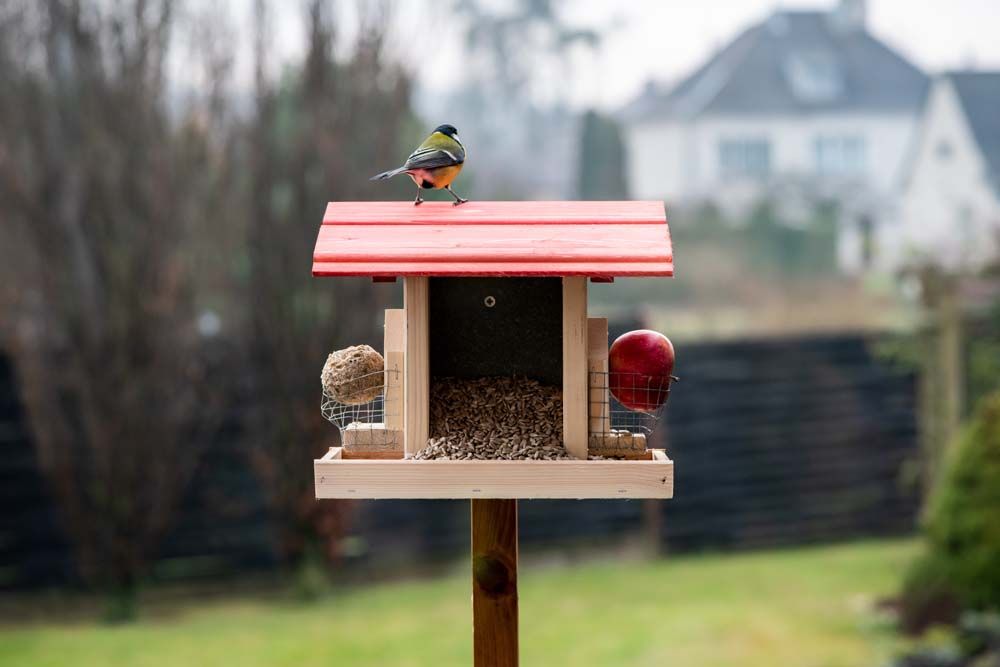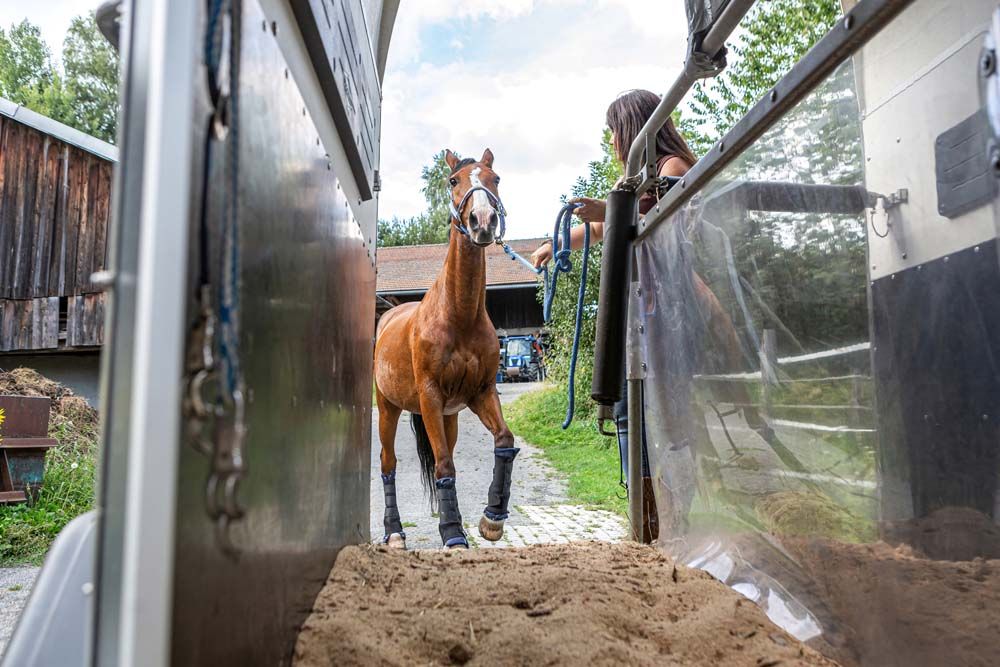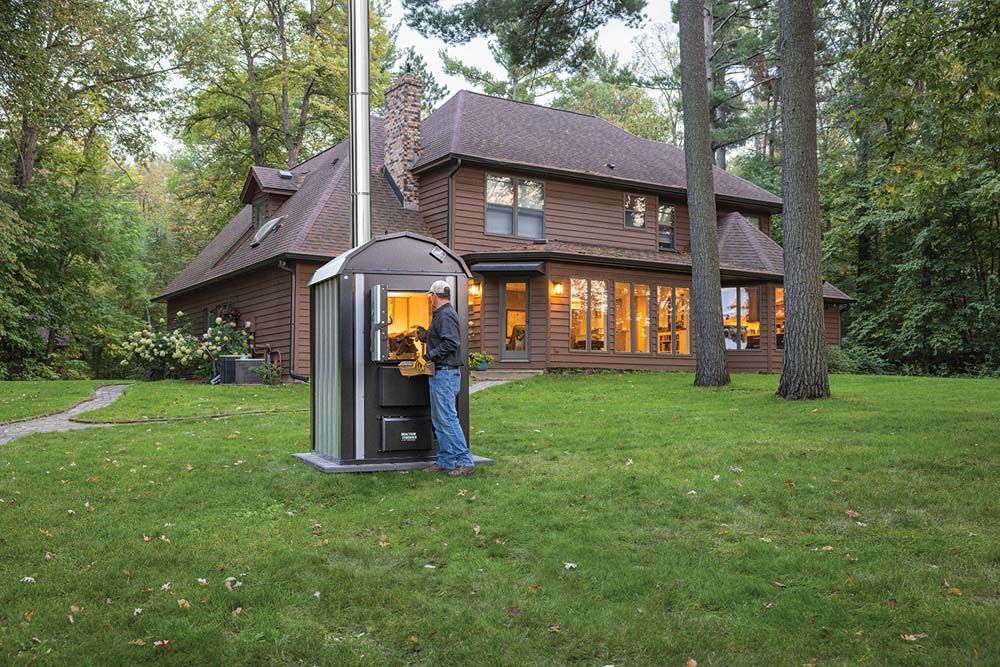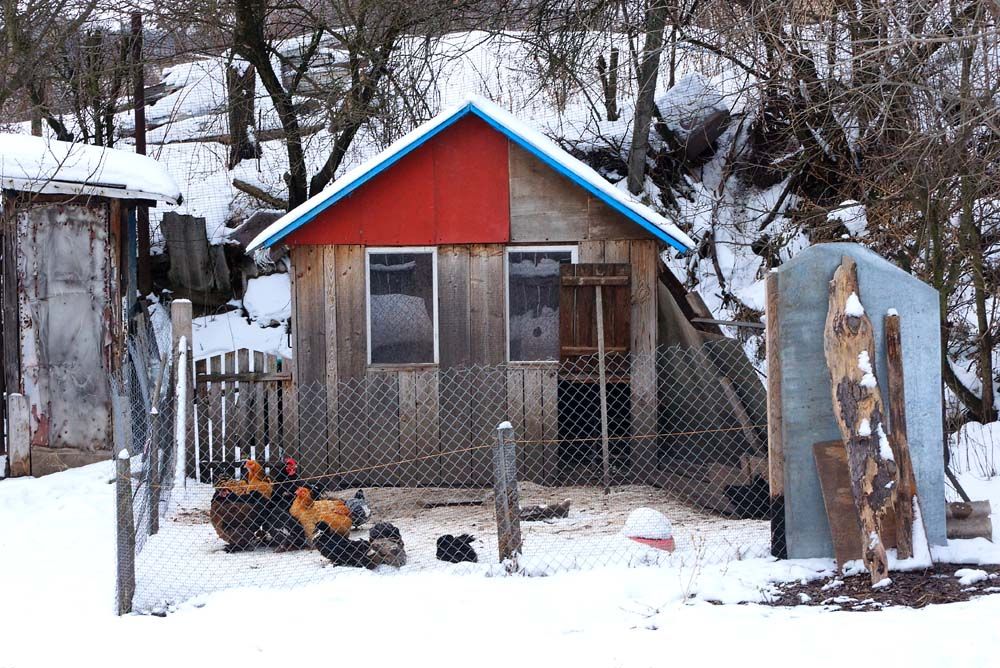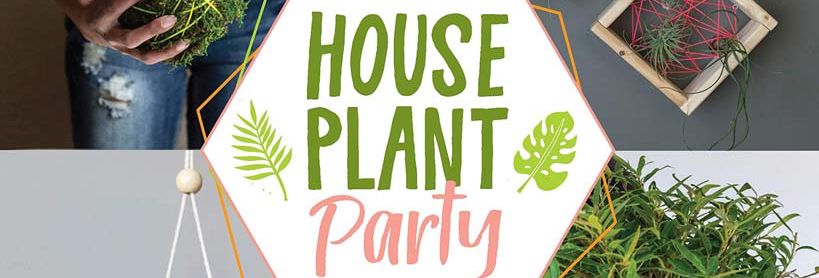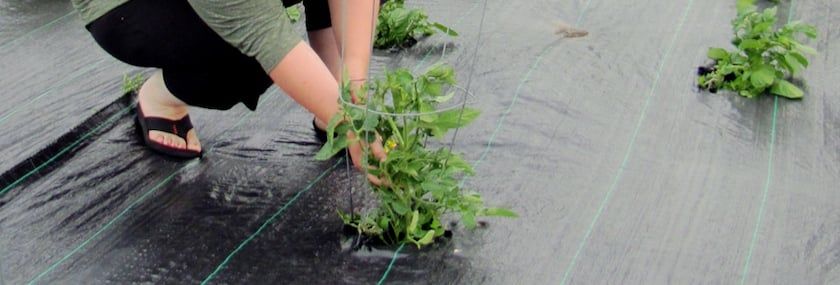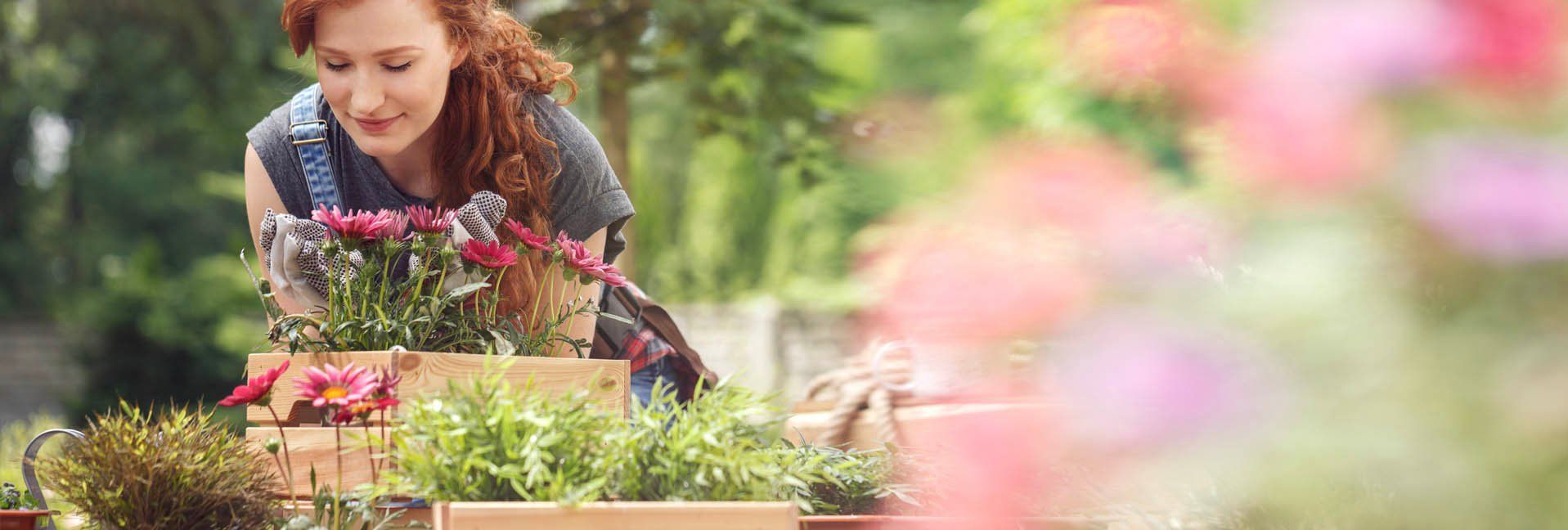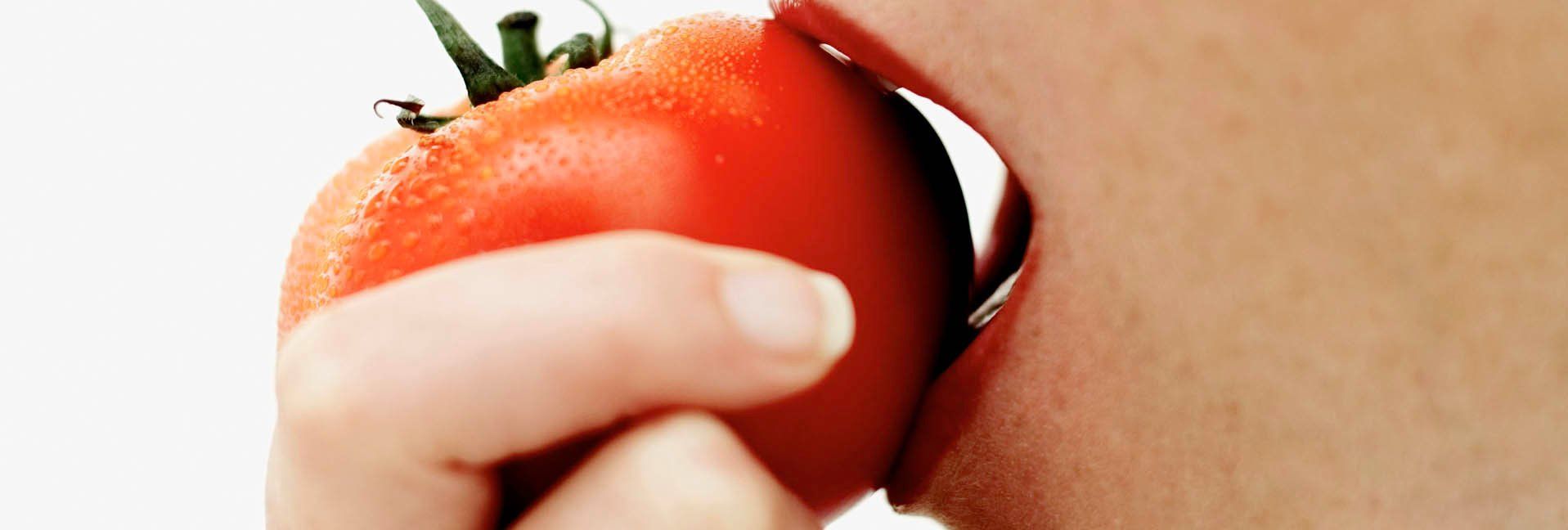Compost 101
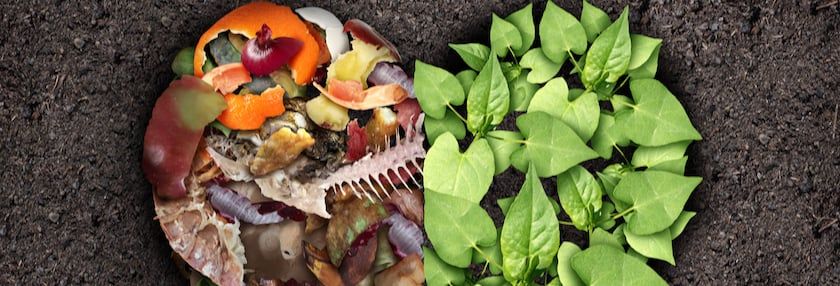

How brown and green equal garden gold
Garden soil supports the roots of our plants and supplies nutrients, but nutrients deplete over time—even crop rotation isn’t enough to produce good results. The good news is that we can add compost to our garden beds and restore those soil nutrients to keep the garden performing at its best.
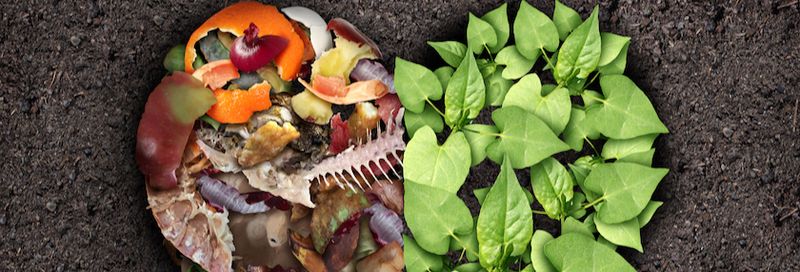
Compost also improves the workability of sandy or otherwise difficult soil types.
Best of all, you can easily create this important garden component with a little help from your livestock—let’s see how:
Brown plus green equals gold
The general idea is to break down organic materials and combine them with a source of nitrogen, which will eventually form a dark soil-like amendment to mix into your garden beds. Organic materials are carbon substances like old leaves, straw, hay, wood shavings, husks, or newspapers.
These carbon items are known as the “browns.” The nitrogen-rich or “green” materials include fresh grass clippings/weeds, coffee grounds, and probably most importantly, livestock manure.
Mix your ‘browns’ and ‘greens’
Used livestock bedding is an excellent resource for making compost. The straw or wood shavings serve as the carbon base and the livestock manure and urine supplies nitrogen—together they form a really nice mixture that can be easily composted.
Gardeners without livestock need to be a little more creative, utilizing bits and pieces of composting materials from whatever they have convenient. In these cases, a layering approach—one layer of browns, one layer of greens, one layer of browns—is often popular.
Let the microbes do their thing
At this point, sit back and let Mother Nature take the wheel—or more specifically, the microbes in the compost. Helpful bacteria (often from the livestock manure) begin the long job of breaking down the organic materials into compost, creating quite a bit of heat in the process.
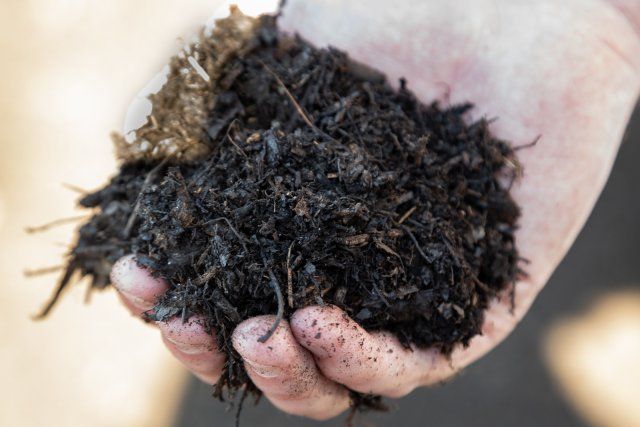
Bonus points for stirring
In a perfect world, we could just build our compost piles and then do nothing while they, um, compost. Turning the pile over and mixing it will achieve quicker results, though. On a small scale, with a mini compost pile for a few garden beds, use a pitchfork and some muscle power— you’ll want to mix larger piles with your tractor’s (or skid steer’s front end loader.
This speeds up the composting process by introducing oxygen back into the pile, giving those helpful compost-making microbes an aerobic boost.
With the microbes working overtime, the temperature of the compost pile rises, possibly killing unhelpful bacteria in the mix before its applied to your garden—cool! Flipping the contents of the compost pile around also helps mix the ingredients, forming the consistent, rich soil supplement that you’re after.
Nothing in excess
There’s a saying from ancient Greece, and it means “everything in moderation,” or “nothing in excess.” While the phrase is intended to be a guide for a good life, it’s actually pretty helpful in the down-to-earth needs of your garden compost: try to hit the perfect balance of browns and greens!
Got rabbits?
Not everyone has large, manure-producing livestock, but you can achieve surprisingly excellent results by incorporating rabbit manure into your compost. (Some people go so far as to suggest that rabbits are the best species out there for compost creation.)
Not only do domestic rabbits produce a decent quantity of manure for their size, this manure is usually combined with a fair amount of urine as well, forming a “manure tea” that ultimately makes terrific compost that plants love.
Be careful with the poultry manure
There’s a good chance that any small-scale homestead has a few poultry species. You can utilize chicken manure for garden compost, but caution is required.
The problem is that chicken manure has so much nitrogen and other plant goodies that it’s easy to overuse.
Chicken manure is considered a “hot” manure, so you’ll need to make sure that you combine it with enough “brown” materials (carbon) to counter the effects of the high nitrogen content.
Water as needed
Those hard-working microbes need moisture in order to transform those raw materials into beautiful compost, and if your pile dries out significantly, it can stymie their efforts. If this happens, it helps to water your compost pile manually—but don’t overdo it because a soggy compost pile can develop some unpleasant odors. (Add more carbons and flip the pile around if this happens.)
Keep out the critters
Even a small compost pile that contains kitchen scraps can attract rats, mice, or similar critters. You might do want to contain or otherwise fence in your compost pile to prevent this.
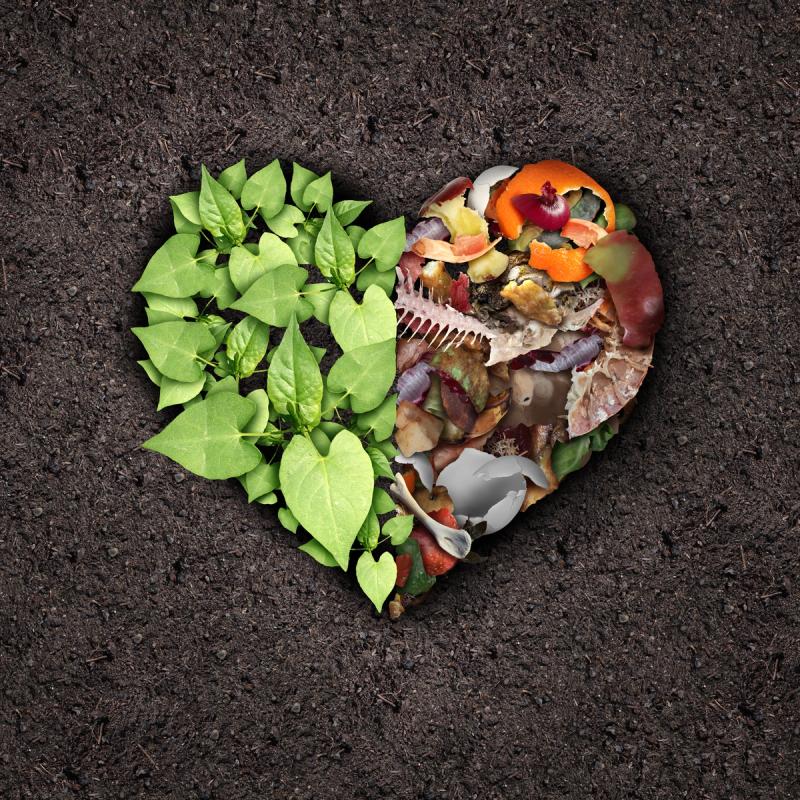
Understand what not to do
Remember: Your compost pile is not a garbage pit! So forgo the bones, dairy products, any type of meat, and oils. As handy as it might be to dispose of these items in the compost pile, don’t do it! They create far more problems than you’ll want to deal with.
Tags:Garden & Landscape

Acreage Life is part of the Catalyst Communications Network publication family.





